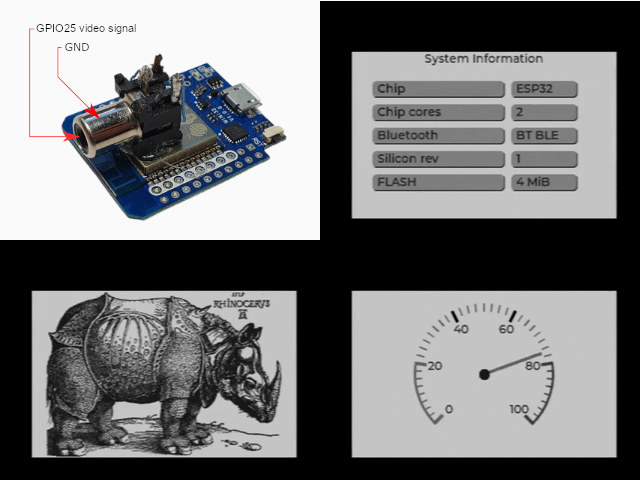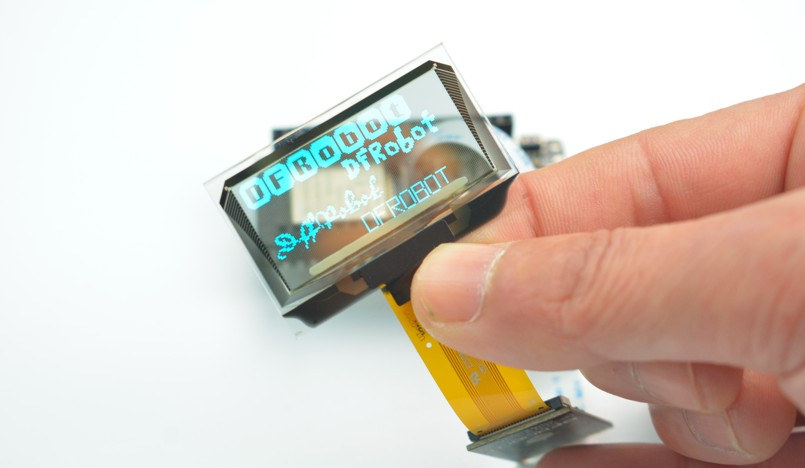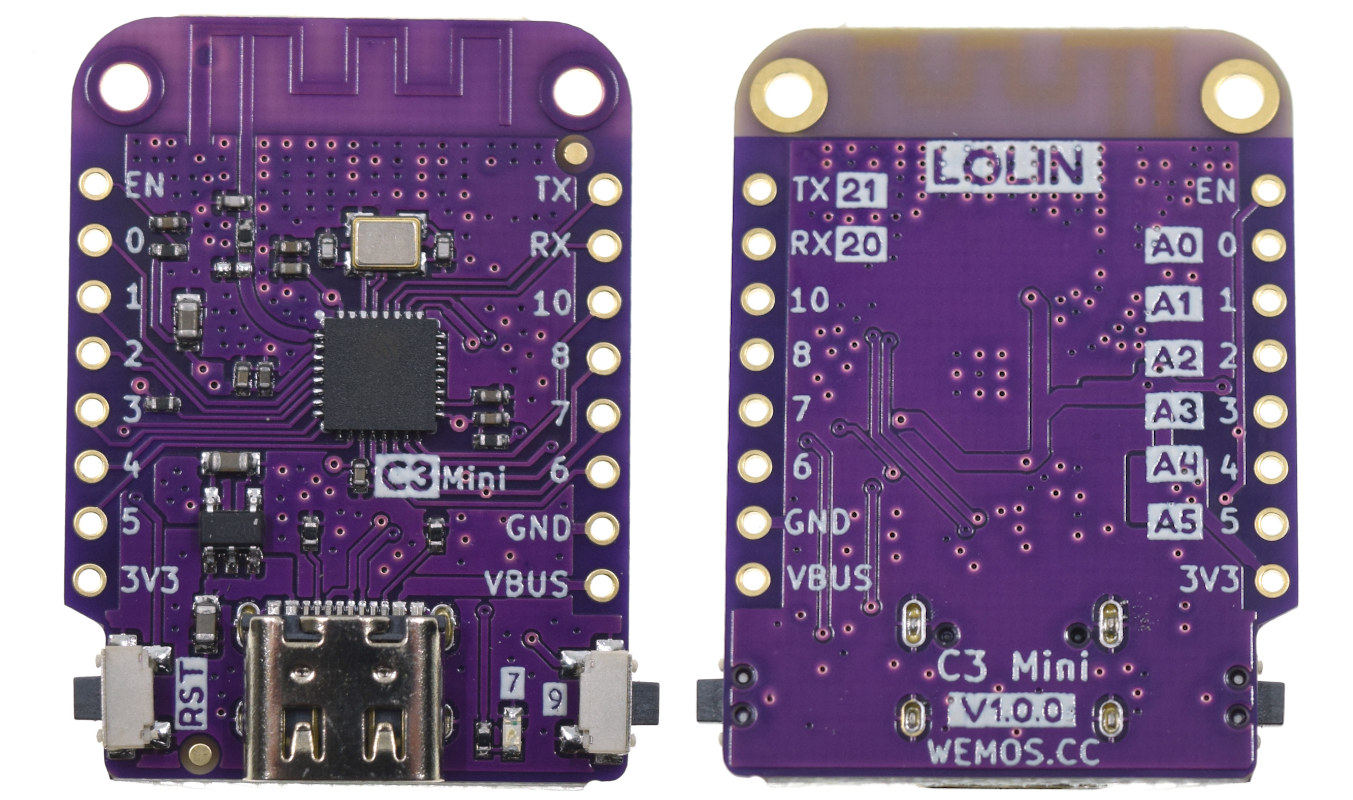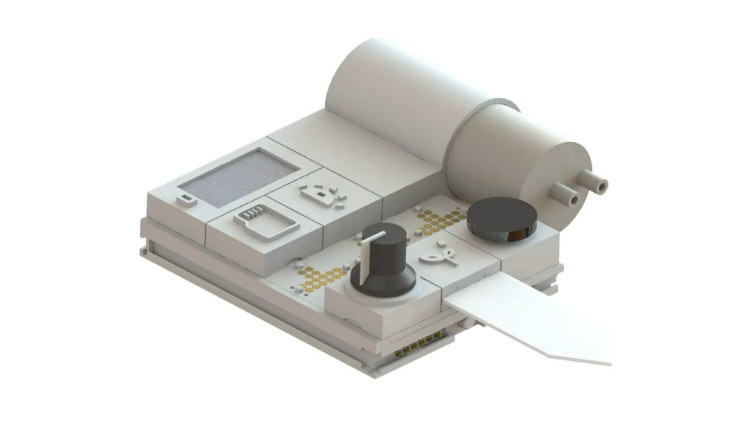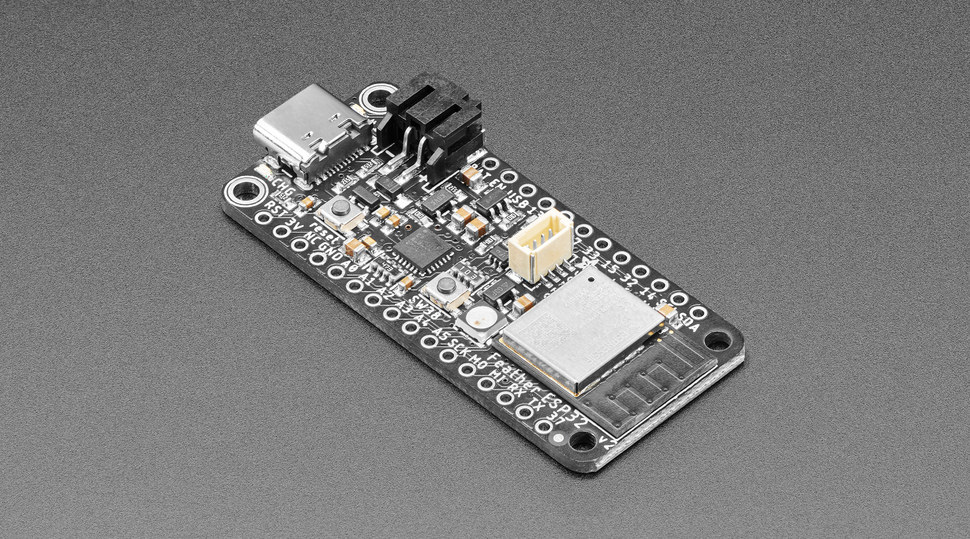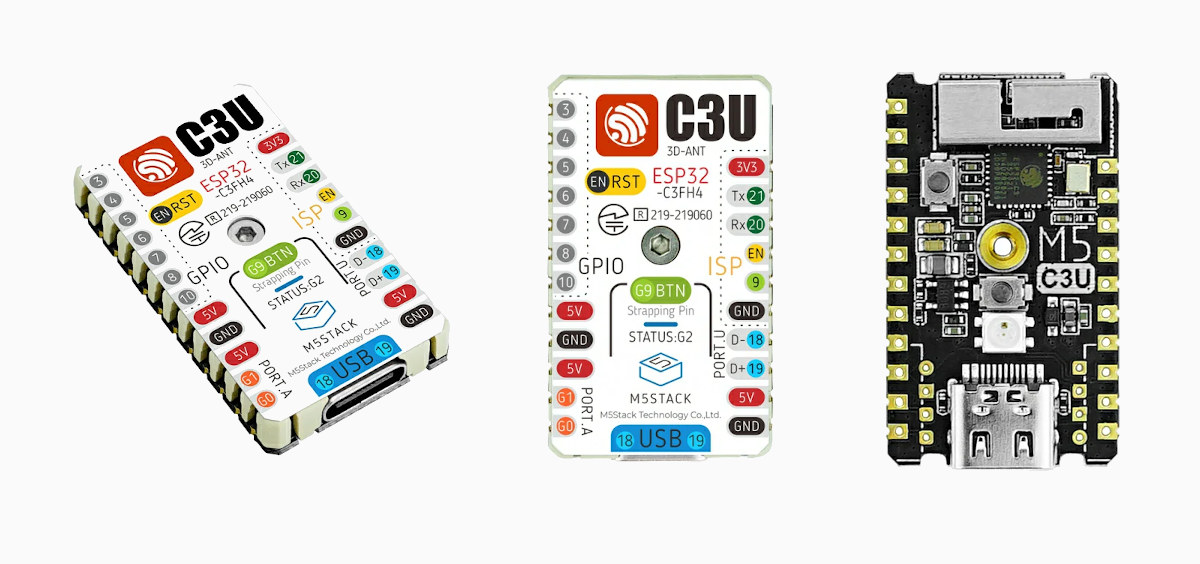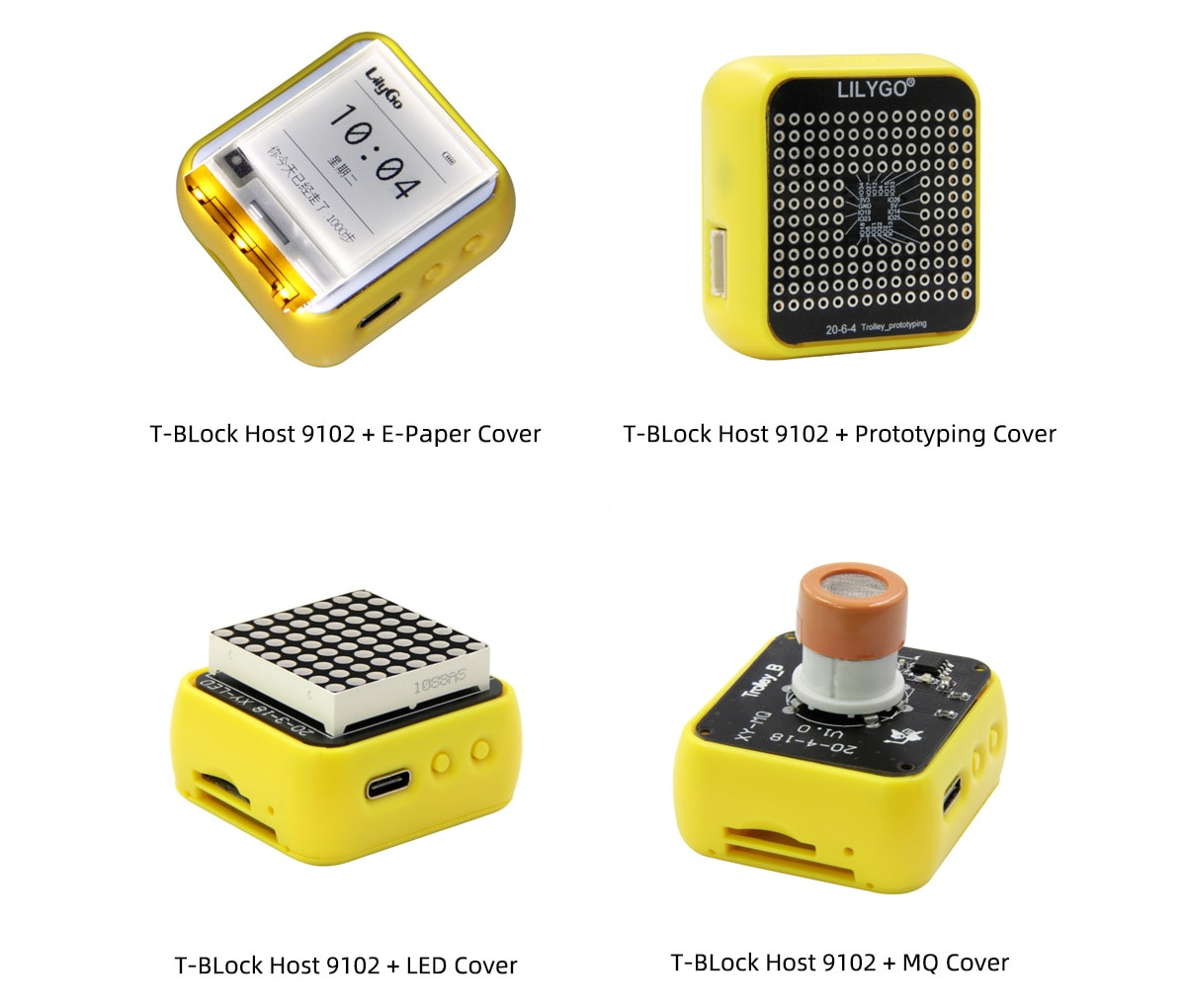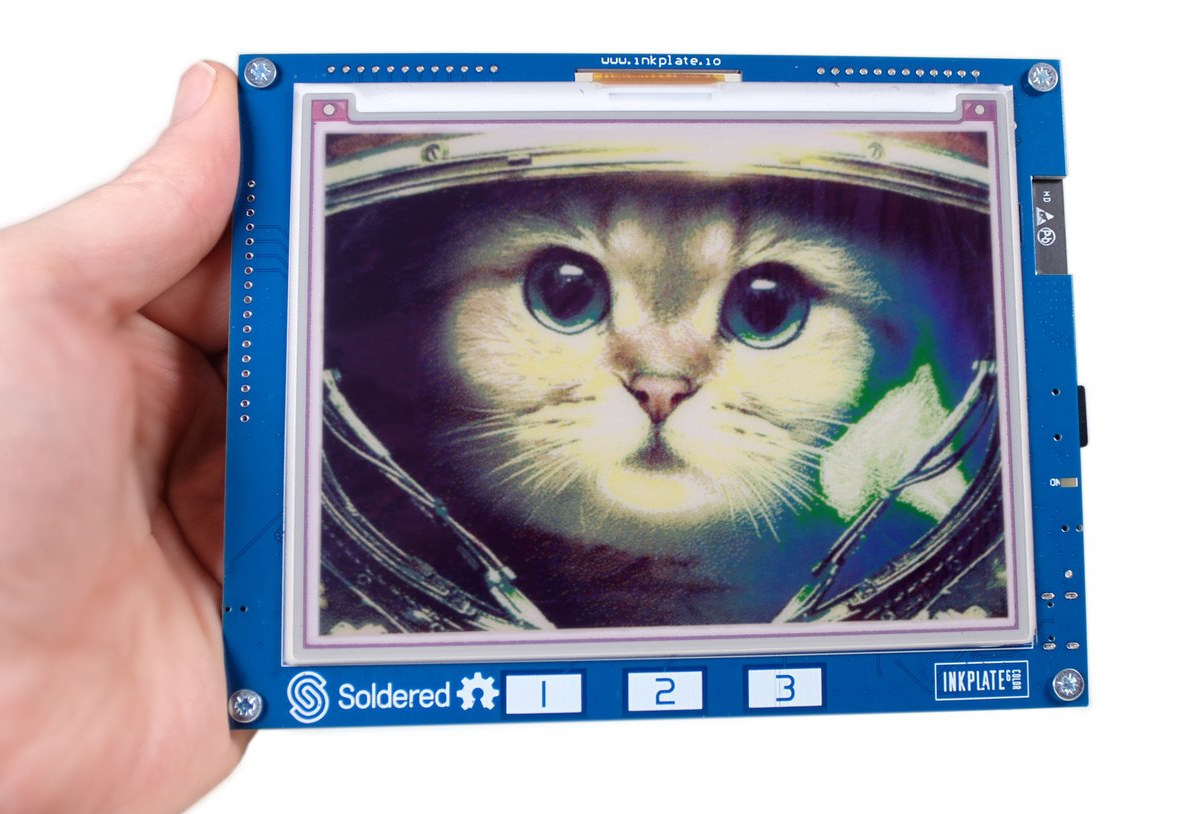It’s been possible to use the I2S for video output on ESP8266 and ESP32 chips for years, but aquaticus’ ESP32 Composite Video Library is may simplify the task of outputting PAL, NTSC, or SECAM video signals from any Tensilica-based ESP32 platforms. The library does not require any external hardware, and you can just connect an RCA connector to GPIO25 (I2S data) and GND, plus integration with the LVGL library makes it easy to create graphical user interfaces as showcased with the captures below. The library supports grayscale video output (no color at this stage), multiple resolutions from 384×288 to 720×288 at up to 25 or 30 Hz, six different pixel clocks for PAL/SECAM and NTSC, as well as six framebuffer formats with namely RGB565, RGB332, Grey 8 bits/pixel, Grey 4 bits/pixel, Monochrome 1 bit/pixel, and LVGL monochrome 1 byte/pixel. You’ll find the source code for the ESP32 Video Composite […]
1.51-inch transparent OLED display works over GDI or SPI interface
We’ve seen transparent, see-through displays at least since 2010 for retail applications, and over the years, these types of transparent displays or variants have made it to consumer devices like smartwatches and notch-free smartphones. But I don’t think I had ever seen transparent displays for the maker market, and DFRobot Fermion is 1.51-inch transparent OLED display with 128×64 resolution that is connected to the host MCU via SPI or GDI (General Display Interface) interface. Fermion specifications: 1.51-inch transparent OLED display with blue pixels based on SSD1309 driver Resolution – 128×64 (transparent part: 128×56) Display interface – 8-bit 68xx/80xx Parallel, 3-/4-wire SPI, I2C Adapter Interface – SPI, GDI Operating Voltage – 3.3V Dimensions Screen Size – 41.92 x 27.08mm Display Area – 35.05 x 15.32 mm Pixel Pitch – 0.274 x 0.274mm Pixel Size – 0.254 x 0.254mm Adapter Size – 18 x 28mm/0.71 x 1.10inch Temperature Range – -40~70°C There […]
LOLIN C3 Mini ESP32-C3 board is compatible with Wemos D1 Mini shields
Wemos LOLIN C3 Mini board is powered by Espressif ESP32-C3 WiFi and BLE RISC-V microcontroller and follows the company’s earlier Wemos D1 Mini (ESP8266) and LOLIN S2 Mini (ESP32-S2) form factor for compatibility with the original stackable Wemos D1 shields. The tiny board comes with 4MB flash embedded in the ESP32-C3 chip, a USB Type-C connector, reset and user buttons, as well as sixteen through holes for GPIOs, VBUS, 3.3V, and ground signals. LOLIN C3 Mini V1.0.0 specifications: SoC – Espressif Systems ESP32-C3FH4 single-core 32-bit RISC-V (RV32IMC) microcontroller up to 160 MHz with 400 KB SRAM, 4MB Flash Connectivity – 2.4 GHz WiFi 4 and Bluetooth 5.0 LE (in SoC) Expansion headers – 2x 8-pin headers with up to 12x GPIO, ADC, I2C, SPI, UART (3.3V I/O voltage) USB – 1x Type-C USB for 5V power and programming Misc – Reset button and button 0 also used to enter Device […]
Pockit modular Linux computer gets a Raspberry Pi CM4 upgrade
We first wrote about the Pockit modular Linux computer with hot-plugging magnetic blocks about a year ago. The system was based on a STM32+ESP32 mainboard with a socket for an optional Raspberry Pi Compute Module 3 and included magnets and electrical contacts to snap and hot-plug modules/blocks while the computer is running. The developer (Anil Reddy) has made good progress with the project and added the option to use a Raspberry Pi CM4 with Pockit (provided you can find one) to improve performance, for example for computer vision. Other changes include support for AI accelerators, an improved dashboard, home automation integration, and more. Pockit now supports over 80 feature BLOCKS ranging from a rotary encoder to a microSD card reader to various camera types, an HDMI block, AI accelerators, and so on. All of which can be magnetically snapped while the computer is running, and automatically detected in the dashboard. […]
Adafruit ESP32 Feather V2 ships with 8 MB Flash, 2 MB PSRAM, USB-C port, and more
Adafruit ESP32 Feather V2 (aka Huzzah32 Feather V2) is an upgrade to the company’s HUZZAH32 ESP32 Feather, still based on ESP32 WiFi & Bluetooth processor, and designed with the initial goal of replacing the obsolete CP2104 with the CP2012N USB to TLL chip. But Adafruit ended up doing a complete redesign with extra storage (8MB flash in total), 2MB PSRAM, a USB-C port replacing the Micro USB port, an extra tactile switch, an RGB LED, lower power consumption, and more. Adafruit ESP32 Feather V2 specifications: Wireless module – Espressif Systems ESP32-PICO-Mini-02 (PDF datasheet) with an ESP32 dual-core Xtensa processor @ up to 240MHz with 2.4 GHz WiFi and Bluetooth Classic/LE, 8MB flash, 2MB PSRAM, PCB antenna, FCC/CE certification. USB – USB Type-C port for power and programming via CP2102N chipset I/Os 16-pin and 12-pin GPIO headers with GPIOs, analog inputs, I2C, UART, SPI, DAC, etc… STEMMA QT connector for I2C devices, […]
M5Stamp C3U IoT module relies on ESP32-C3’s own USB interface for firmware programming
M5Stamp C3U is an update of the M5Stamp C3 RISC-V IoT module with heat-resistant cover, support for WiFi 4 and Bluetooth 5.0, that does without CH9102 USB to TTL chip, relying instead on the internal USB interface of ESP32-C3 processor to handle serial programming of the firmware, and gaining on extra GPIO pin in the process. While several ESP32 processors come with a built-in USB interface, many boards still use an external USB to TTL chip such as CH340 or CP2102 to handle the serial interface used for debugging and flashing the firmware likely because of limitations when using ESP32-C3’s USB serial/JTAG controller console, but M5Stack probably considered those to be workable, and the small cost-saving beneficial. M5Stamp C3U specifications: WiSoC – ESP32-C3FH4 32-bit single-core RISC-V processor @ up to 160 MHz, with 384KB ROM, 400KB SRAM, 8KB RTC SRAM, 4MB embedded flash, WiFi and Bluetooth Connectivity 2.4 GHz WiFi […]
TTGO T-Block modular ESP32 devkit supports “Trolley” covers acting as display, buttons, sensor, proto area, etc…
When I first LilyGO TTGO T-Block ESP32 devkit with an enclosure and a display it reminded me of the M5Stack Core2 devkit, but it’s actually different as LilyGO designed a modular system that allows users to change the functionality of the top cover with expansion boards called “Trolleys”. That means TTGO T- Block can be fitted with a small e-Ink display, a prototyping cover, an RGB LED matrix, a small board that supports various MQ gas sensors, touch buttons, or a Trolley board equipped with headers compatible with common Arduino modules. TTGO T-Block Host 9102 preliminary specifications: WiSoC – ESP32 dual-core processor @ 240 MHz with 520KB SRAM, WiFi 4 and Bluetooth LE 4.2/5.x connectivity Memory – 8MB PSRAM Storage – 16MB SPI flash, MicroSD card slot USB – 1x USB Type-C for power and programming via CH2104 USB to TTL chip Trolley interface – 20-pin connector with 17x GPIO, […]
Inkplate 6COLOR – A 5.8-inch e-paper color wireless display (Crowdfunding)
Inkplate 6COLOR is a 5.8-inch color e-paper display equipped with ESP32 WiSoC to provide WiFi and Bluetooth LE connectivity, and programmable with the Arduino IDE or MicroPython. We’ve covered Inkplate ESP32-based e-paper displays since Inkplate 6 was launched in 2019, and since then the company introduced a larger model and an upgraded variant with a touchscreen display and higher resolution. But so far, all were grayscale models, and Inkplate 6COLOR is the first to come with color, or more exactly 7 colors. Inkplate 6COLOR specifications: Wireless module with dual-core ESP32 processor, Wi-Fi 4 & Bluetooth 4.0 (BLE) connectivity External storage – MicroSD card socket Display – 5.8-inch, 600 x 448 e-paper display with 7 colors (Black, White, Red, Yellow, Blue, Green, Orange) 128 DPI 25 seconds refresh time (manufacturer); tested by Inkplate: 10 to 11 seconds USB – 1x USB Type-C port for programming and power Expansion – Headers for […]


